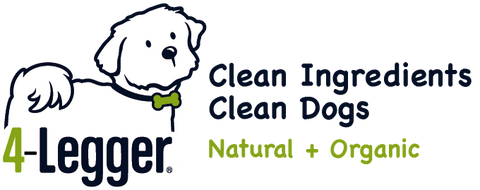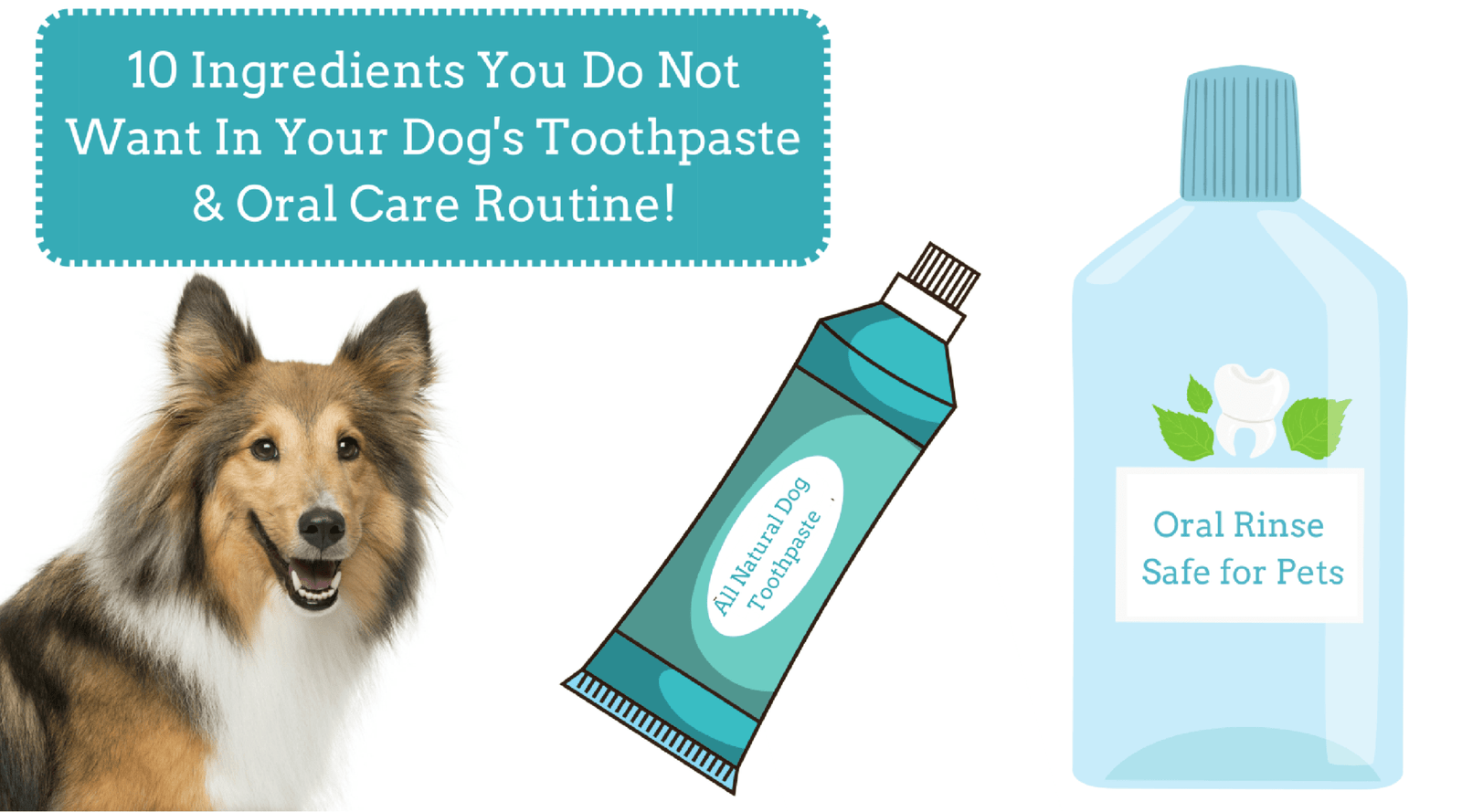10 Ingredients You Don't Want In Your Dog's Toothpaste and Oral Care Routine
Despite the influx of more convenient options to maintain your dog's dental health, brushing your dog's teeth is the gold standard!
Let's face it - chew toys and water treatments aren't miracle dental remedies and once your dog's teeth have tartar - a professional cleaning from a veterinarian is in order to get their teeth and gums to a level where their teeth can be maintained with a regular brushing routine.
Don't get us wrong - chew toys can help to reduce plaque build-up but they do not reduce the buildup of bacteria below the gum line and even if your dog regularly chews, it is not the same as brushing their teeth. If you are opting for convenience methods in order to avoid brushing, you are putting your dog at risk. Imagine as a human deciding to stop brushing your teeth and relying instead on chewable options for your daily oral care regimen! Exactly! That's just gross!
Unfortunately, greenwashing - trying to make a product sound all natural when it isn't - is just as prevalent in oral care products as it is in dog shampoo. Lots of products claim to be "all natural" yet, when we look at the ingredients we see an entirely different story!
Do you know how to identify bad ingredients? This article will help you make informed decisions about dental hygiene products for your dog!
Here are the top 10 ingredients you do NOT want as part of your dog's dental care routine!
| Alcohol |
Many of the popular dental gels for dogs and cats contain 12.5 - 25% grain alcohol or denatured alcohol. Not all manufacturers list it on the ingredients label so you may need to smell it to determine if alcohol is in the solution. Using solutions with alcohol long term - the drying and irritation of the gums can be painful for your dog. |
| Artificial Color |
Often contaminated with heavy metals, artificial colors have links to allergic reactions, cancer, reproductive and developmental toxicity. Stay far away from all artificial colors in anything that goes in or on your dog! Example: FD&C Blue 1 in both toothpaste and water additives. In toothpaste, Sodium Copper Chloraphyilin is used as an artificial colorant, there is enough evidence about the toxicity of this ingredient that the FDA restricts it's use in human cosmetics used around the mouth and eyes as it has links to organ system toxicities and is bioaccumulative. |
| Artificial Flavor |
The fact is, both natural and artificial flavors have some associated dangers. The difference is the starting source ingredient - a petrochemical or a plant. They are often synthesized to extract the same ingredients - neither of which are very natural after they have been extracted. Artificial flavors may be linked to cancer, behavioral problems, reproductive damage and more. Example: Peppermint flavor is NOT the same thing as Peppermint Essential Oil. |
| Artificial Preservatives |
Potassium Sorbate and Sodium Benzoate are both artificial preservatives that have links to allergies and immunotoxicity (organ system toxicity). Other artificial preservatives may include Formaldehyde (like Diazolidinyl Urea) Formaldehyde releasing preservatives have links to allergies, skin irritation, and cancer. |
| Artificial Sweeteners |
Thankfully, we've not seen a lot of artificial sweeteners in dog food to really know how these ingredients interact with your dog. When manufacturers started putting artificial sweetener in peanut butter - we learned that ingredients like Xylitol are safe in humans but in a dog can cause a sudden drop in blood glucose (hypoglycemic shock). If your dog survives, they can have long term liver damage. Human toothpaste made with Xylitol should never be used on your dog. Stevia and other artificial sweeteners like sorbitol are generally thought of as safe and have become popular as an alternative artificial sweetener in human foods. If our dogs rinsed their mouths when they were done brushing it likely wouldn't have made the list. Alas, they don't so we added artificial sweeteners to the list as a precaution and as more products are added to the market we will continue to monitor the safety of artificial sweeteners and how they interact with your dog. |
| Antibacterials | The Food and Drug Administration recently banned Tricolsan and 18 other antibacterials as researchers found links between hormone disruption and they can serve as the impetus for drug-resistant bacteria. |
| Fluoride | When fluoride got really popular manufacturers started to import less expensive fluoride form overseas that has heavy metal contamination. This heavy metal contamination has links with cancer. |
| Grapefruit Seed Extract |
Oh we know - it sounds all natural but a common contaminant of grapefruit seed extract is methylparaben. The safety of the grapefruit seed extract would depend on the purity of the grapefruit seed extract. It made the list as a precaution. Unless we have 100% trust in the manufacturer we don't trust it with our dogs. |
| Methylparaben | Methylparaben is a preservative that mimics estrogen to act as potential hormone (endocrine) system disruptor. Parabens are linked with allergies and immune toxicity. Many believe parabens play a role in cancer. Also - see grapefruit seed extract - above. |
| Sodium Hexametaphosphate | Used as an anti-staining agent (whitening) it is generally thought of as safe in small doses; however, there are concerns for lead contamination depending on the purity of the ingredients used. Since there are safer ingredients (like pure baking soda) - we added it to the avoid list! |
The bottom line is, there are safer alternatives for your dog that have for hundreds of years been effective at maintaining oral care so long as the humans get their furry family members into a routine of maintaining their teeth and gums.
We've been using ground sea salt, baking soda, and peppermint essential oils on our dog's teeth. These three simple ingredients are a safe and effective all natural toothpaste alternative!
If you missed our article on What You Need to Know About Your Dog's Oral Health - check it out.





